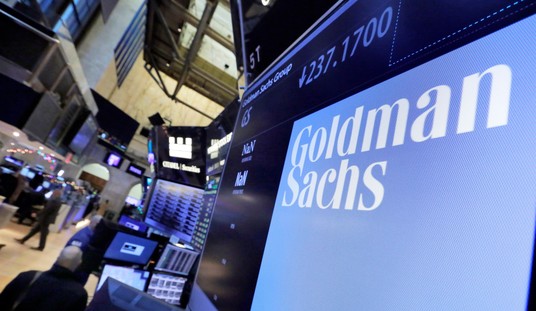The Saudis may have to completely change their economy after the crash of oil prices. The Middle East head of the International Monetary Fund thinks the Saudi Arabian government is going to have to admit its reliance on oil as the focus of its financial success isn’t enough. Via The Telegraph: (emphasis mine)
The world’s largest producer of crude oil will need to “transform” its economy away from oil revenues, which make up more than 80pc of the government’s wealth, according to Masood Ahmed, head of the Middle East department at the IMF.
“This will have to be part of a multi-year adjustment process,” Mr Ahmed told The Telegraph.
He urged the kingdom to reform its generous system of oil subsidies and introduce a host of new taxes, including consumption levies such as VAT.
“There will have to be a major transformation of the Saudi economy. It is necessary and it is going to be difficult, but it is a challenge which I think the authorities have clearly laid out”, said Mr Ahmed.
A part of the reason why Saudi Arabia is seeing their expenses jump is the fact they hand out subsidies to oil companies. The government shouldn’t be paying companies at all in tax breaks, but should instead keep taxes low for everyone. There’s no reason for the government to hand out welfare to any corporation because it only encourages the corporations to do baseline levels of production to make sure they get more government cheese (to steal a song title from The Rainmakers). Saudi Arabia’s decision to not cut oil production any time soon is just another example of cronyism. Via CNBC and Reuters:
So far, OPEC powerhouse Saudi Arabia has withstood pressure from other cartel members to cut output, instead sticking to a strategy of allowing the price of oil to drop to levels that were likely to force rivals such as U.S. shale producers out of business. The prospect that Saudi Arabia could relent helped oil prices rebounding on Friday, gaining more than 25 percenton the 12-year lows hit earlier in the month.
The problem is the move may have backfired because U.S. energy providers are certain the move towards fracking over traditional drilling is going to help them survive the current oil price freefall. It might put OPEC out of business, or at least convince the countries involved to stop trying to regulate the price of oil on its own. The oil issues sure have Saudi Arabia looking at other avenues of making cash. Bloomberg reported late last month how King Salman was going to cut subsidies and look at other ways to fix up the country’s government, including letting the private sector actually work.
In its first months in power, King Salman’s administration brought swift change to the traditionally slow-moving kingdom, overhauling the cabinet, merging ministries and realigning the royal succession.
The financial crunch imposed by cheaper oil means the focus is now shifting to economic reforms that the kingdom will carry out over the next five years. The government plans to privatize “several sectors” and “amend the programs of oil, water and electricity subsidies through re-pricing them gradually over the coming five years,” the ministry said.
Saudi Arabia is also going to do some military cuts as well because it’s realizing how bad the economy is. But the Kingdom’s issue isn’t just military spending and government oil subsidies, but problems with government spending as a whole, especially for people on welfare. Karen Elliot House noted in her book On Saudi Arabia: Its People, Past, Religion, Fault Lines – and Future how the government pretty much throws money at everyone, without real success:
The king’s decision to institute a minimum wage for government jobs, offer two-month bonuses to government workers, and create an additional 126,000 government jobs (60,000 for teacher and health diploma holders) will together give young Saudis even less incentive to prepare an compete for productive jobs in the private sector. With this latest largesse, public expenditures have tripled since 2004, while the private sector’s contribution to non-oil GDP has stagnated. Until productiveity increases in the private sector, per capita income in Saudi Arabia will continue to lag, holding down the standard of living for most Saudis. Indeed, adjusted for inflation, real per capita income has been stagnant since the middle of the 1980s at roughly $8,550.
House also writes Saudi Arabian oil companies are relying mostly on foreign workers for oil jobs, because Saudis aren’t interested or qualified. What it appears the Kingdom is trying to do is “Saudize” the economy (i.e. make it so more Saudis are working, not foreign workers), but the solutions aren’t working. House even compares it to some plans in the Soviet Union which promise much, but don’t deliver. Communism, amiright? So this is why things are bad in Saudi Arabia, and the long-term prospects don’t look good at all. This should also be a cautionary tale to U.S. businesses (and voters and elected officials) who believe increased government spending, added with corporate and general welfare will produce results. There are those on the Right (mainly Arthur C. Brooks at American Enterprise Institute) who believe a government safety net needs to exist, but the question is how big of one will it be? The other question Congress needs to look at is why do corporations really need ExIm to survive? How big of a corporate welfare safety net should the U.S. government provide? If the answer is zero, then how do those in Congress who are anti-ExIM convince their colleagues it needs to go away? This is also something anti-corporate welfare conservative and libertarians can bring up when talking to friends and family. If there’s enough of a push for fiscal sanity by voters, especially after elections are over and done with, then it might help America’s spending as well.








Join the conversation as a VIP Member